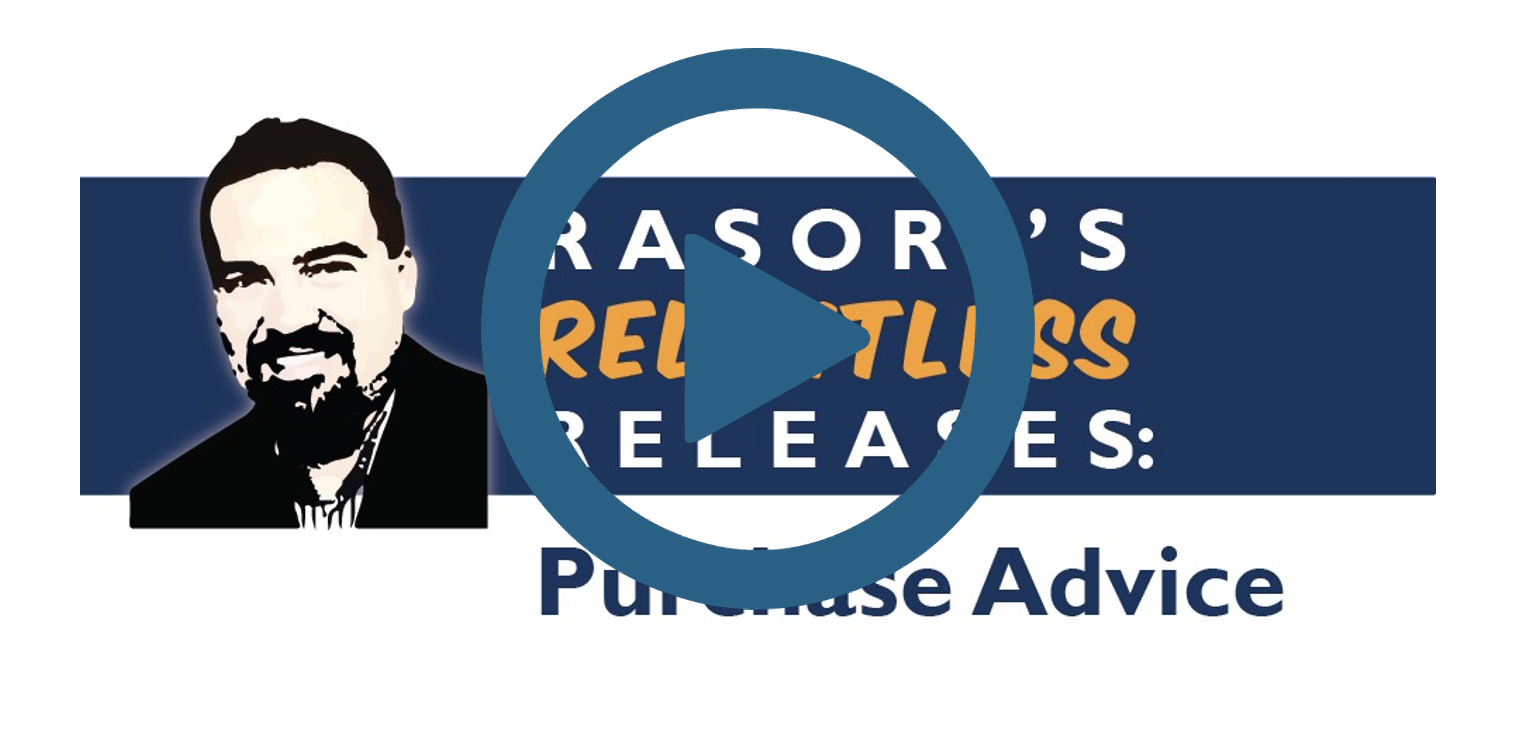
Rasori’s Relentless Releases:
Published 7/20/2022
MCT recently connected with the Fannie Mae purchase advice API, allowing clients to pull purchase advice data to MCTlive! directly out of Fannie Mae.
In MCT’s latest installment of Rasori’s Relentless Releases, Phil Rasori covers the unique features of the Fannie Mae purchase advice API with MCT.
View the episode to get the scoop on these timely updates.
MCT® is continually optimizing our capital markets software to keep up with the current market space. In an effort to inform you of these real time enhancements this video will review the latest MCTlive! innovations and functionality updates for your benefit. View the episode then join our newsletter to be updated on new releases.
About the Video:
In the latest installment of Rasori’s Relentless Releases, Phil Rasori and Robbie Chrisman discuss the features of the Fannie Mae purchase advice API with MCT.
Topics Include:
How to schedule and automate purchase advice data into your LOS
Database transfers of purchase advice data to the secondary system
Accounting impact from cash flows of settlements and loan purchase advices
Time and efficiency benefits
Want to stay updated? Join our newsletter to be notified of future releases.

Rasori’s Relentless Releases focuses on technology updates to MCTlive!, MCT’s award-winning loan pipeline management software.
Features include:
- 100% Cloud-Hosted, Web-Based, Real-Time Functionality
- Multidimensional Pull-Through Analytics
- MCT Marketplace loan trading exchange
- Electronic TBA Trading
- Rapid Commit for Agency Delivery
Video Transcript
Robbie: You told me that a lot of big companies are hand entering data when it comes to purchase advice. We at MCT are able to pull best efforts in addition to what you’re hedging and can do performance reporting out of our system. Talk to us a little bit about what’s going on there.
Phil: This is something that we’ve talked about with investors over the years. We have to credit Fannie Mae here for leading the industry from an API perspective. About three months ago, we connected with the Fannie Mae purchase advice API, and that allows us to pull purchase advice data, or our clients to pull purchase advice data, from MCTlive! directly out of Fannie Mae.
And this can be scheduled on a daily basis, or just with a button click. You can pick a date range, and to your point what you had said earlier, about manually entering, data, this is prevalent throughout the industry. All of this purchase device data is basically, taken from the purchase device and manually entered back into the LOS. We have the ability to, since it’s in our database to write that data back into the LOS, whatever LOS you use, if they have the ability to digest it. Or if you have your own, data lake set up, we can write back directly into that.
So, that can solve a lot of issues there, but you know what we’re working on is moving, investor by investor, the whole industry. And I also should have mentioned Freddie Mac as well. They are in the final stages of creating their API. So now you have the two agencies, the two largest buyers of loans in our in our client base.
And then we’re working with the top five investors right now to work on either SFTP, API, or a simple database transfer of purchase advice data. Once we have all executions of all of the executable investors on MCT Marketplace, loading the purchase advice data back into MCTlive!, the game changer there is that from a cash standpoint, your database record really becomes the secondary system, which we think it should be, from a capital market standpoint. There’s two cash flows, obviously from hedging. There’s the settlements and then there’s your loan purchase advices. Currently the settlements obviously reside in the hedging system and then you go enter those back into the LOS. We think that the database record from a cash standpoint should be in the secondary system.
Robbie: Yeah, I want to talk about that for a second. For anybody that owns the purchase advice, as soon as the loan is committed, you don’t need the LOS data. Can you talk about how impactful that is?
Phil: Yeah, I think that there’s a couple different factors here. I talked about earlier, we talked about taking out the human aspect, right? So, that is a cost. Because these are generally not minimum wage employees that are manually entering this data. This is someone higher paid in finance. But the more important aspect of getting this purchase advice data automatically updated into your secondary system, into MCTlive! is that now for month end accounting reports that data is automatically updated.
So, we don’t have to wait for it to manually be updated and we know that all of the held for sale numbers won’t be stale. So, what happens invariably at the end of the month is that you have held for sale loans that are not actually held for sale because they’ve actually been purchased, but the data hasn’t been updated in time. This will actually solve that, because the purchase device data is usually in a few hours before the actual loan is purchased.
And then on the loan sale side, after the loan is sold, we have the loan. If the loan gets kicked, as far as it’s been committed, but the investor won’t buy it, that loan will show back up in the pipeline. But if it’s purchased, we’ll obviously get the purchase advice.
So, like you were saying, Robbie, the data becomes a little bit less relevant past point of funding and committing if you know that you own the purchase advices on the back end.
Robbie: You talk about human error, you talk about data, integrity, you talk about some efficiencies. Is there anything else that, any other benefits that, that you really see by working with us?
Phil: Yeah, I think that, you know, again, if you continue down the road, and, and one of the things I forgot to mention is in MCT Marketplace, we’re going to make it a requirement that all of the investors will post their purchase advices either in MCT MCT Marketplace created purchase advice or the investor’s created purchase advice, that’ll be posted in the system.
But again, you really have a benefit there from a standpoint of both time and efficiency, which I think that allows, these are all small pieces, these inefficiencies. These small inefficiencies add up and we think will prevent lenders psychologically from having 200 executions. For instance, we know a lot of things go into that, but we go back to our thesis on MCT Marketplace that we want every willing and able buyer to bid on every loan. That’s really the goal there, that’s the vision.
And you know, there’s a lot of things that have to happen automated. Standardized contracts, automated research, there’s a lot of stuff that has to happen, but also the downstream effects of all of the different purchase advices, the different formats, if we can get those, those automated and those normalized, you really get closer to that execution Nirvana that we’re looking for.
Robbie: For looking for more help on purchase advices, what are the best next steps?
Phil: That would be contact your MCT trader or your account representative, your AE. We do have, also, I should say that we have quite a few non-MCT hedge customers that use Fannie and Freddie Rapid Commit. That purchase advice API will be part of the Rapid Commit functionality. So, you can execute your Rapid Commits, and then those loans that have been committed, the API basically will call those once they’re purchased and those will all show up in database as well. So, you may not have a trader, but you can contact your rep.

“The purchase advice API will be part of the Rapid Commit functionality, allowing you to execute your Rapid Commits and have those loans show up in database once purchased.”
Phil Rasori, COO, MCT
About the Host:
Phil Rasori, Chief Operating Officer, MCT
Mr. Rasori is a recognized thought-leader in capital markets operations within the mortgage banking community. His areas of expertise include complex financial modeling, computational dynamics, and linear programming for operational optimization. He developed the ground-breaking mortgage pipeline hedging algorithms that form the foundation of MCT’s HALO Program today. He has also pioneered several metrics that have become standard industry parlance, including “beta pull-through” factors. In addition to banking clients, Mr. Rasori has consulted with GSE agencies and the US Government on hedging best practices for community banks. Mr. Rasori has functionally led MCT operations since 2005 and ascended to his current role as COO in 2007.
Mr. Rasori is a graduate of University of California, San Diego, and holds a B.S. in Management Science.




